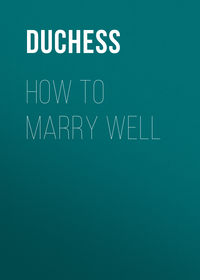 полная версия
полная версияAiry Fairy Lilian
"What a lunch you will eat when you get to town! But don't overdo it, Guardy. You will be starving, no doubt; but remember the horrors of gout. And who will give you your breakfast at seven?"
She raises her large soft eyes to his and, unfurling her fan, lays it thoughtfully against her pretty lips. Sir Guy is about to make an eager reply, when Miss Beauchamp interposes.
"I always give Guy his breakfast when he goes to London," she says, calmly yet hastily.
"Check!" says Cyril, at this instant, with his eyes on the board. "My dear Musgrave, what a false move! – a fatal delay. Don't you know bold play generally wins?"
"Sometimes it loses," retorts Taffy, innocently; which reply, to his surprise, appears to cause Mr. Chetwoode infinite amusement.
"Whenever you do go," says Lilian to Sir Guy, "don't forget my sweetmeats: I shall be dreaming of them until I see you again. Have you a pocket-book? Yes. Well, put down in it what I most particularly love. I like chocolate creams and burnt almonds better than anything in the world."
Cyril, with dreamy sentiment, "How I wish I was a burnt almond!"
Miss Chesney, viciously, "If you were, what a bite I would give you!"
Taffy, to Sir Guy, "Lilian's tastes and mine are one. If you are really going to bring lollypops, please make the supply large. When I think of burnt almonds I feel no end hungry."
Lilian, vigorously, "You shan't have any of mine, Taffy. Don't imagine it! Yesterday you ate every one Cyril brought me from Fenston. I crossed the room for one instant, and when I came back the box was literally cleared. Wasn't it a shame? I shan't go into partnership with you over Sir Guy's confections."
Taffy, sotto voce, "Greedy little thing!" Then suddenly addressing Sir Guy, "I think I saw your old colonel – Trant – about the neighborhood to-day."
Cyril draws himself up with a start and looks hard at the lad, who is utterly unconscious of the private bombshell he has discharged.
"Trant!" says Guy, surprised; "impossible. Unless, indeed," with a light laugh, "he came to look after his protégée, the widow."
"Mrs. Arlington? I saw her yesterday," says Taffy, with animation. "She was in her garden, and she is lovely. I never saw anything so perfect as her smile."
"I hope you are not épris with her. We warn everybody against our tenant," Guy says, smiling, though there is evident meaning in his tone. "We took her to oblige Trant, – who begged we would not be inquisitive about her; and literally we are in ignorance of who she is, or where she came from. Widows, like cousins, are dangerous," with a slight glance at his brother, who is leaning back in his chair, a knight between his fingers, taking an exhaustive though nonchalant survey of the painted ceiling, where all the little loves and graces are playing at a very pronounced game of hide-and-seek among the roses.
"I hope," says Florence, slowly, looking up from the rara avis whose tail she is elaborately embroidering, – the original of which was never yet (most assuredly) seen by land or sea, – "I hope Colonel Trant, in this instance, has not played you false. I cannot say I admire Mrs. Arlington's appearance. Though no doubt she is pretty, – in a certain style," concludes Miss Beauchamp, who is an adept at uttering the faint praise that damns.
"Trant is a gentleman," returns Guy, somewhat coldly. Yet as he says it a doubt enters his mind.
"He has the name of being rather fast in town," says young Musgrave, vaguely; "there is some story about his being madly in love with some mysterious woman whom nobody knows. I don't remember exactly how it is, – but they say she is hidden away somewhere."
"How delightfully definite Taffy always is!" Lilian says, admiringly; "it is so easy to grasp his meaning. Got any more stories, Taffy? I quite begin to fancy this Colonel Trant. Is he as captivating as he is wicked?"
"Not quite. I am almost sure I saw him to-day in the lane that runs down between the wood and Brown's farm. But I may be mistaken; I was certainly one or two fields off, yet I have a sure eye, and I have seen him often in London."
"Perhaps Mrs. Arlington is the mysterious lady of his affections," says Guy, laughing, and, the moment the words have passed his lips, regrets their utterance. Cyril's eyes descend rapidly from the ceiling and meet his. On the instant a suspicion unnamed and unacknowledged fills both their hearts.
"Do you really think Trant came down to see your tenant?" asks Cyril, almost defiantly.
"Certainly not," returning the other's somewhat fiery glance calmly. "I do not believe he would be in the neighborhood without coming to see my mother."
At the last word, so dear to her, Lady Chetwoode wakes gently, opens her still beautiful eyes, and smiles benignly on all around, as though defying them to say she has slumbered for half a second.
"Yes, my dear Guy, I quite agree with you," she says, affably, apropos of nothing unless it be a dream, and then, being fully roused, suggests going to bed. Whereupon Florence says, with gentle thoughtfulness, "Indeed yes. If Guy is to be up early in the morning he ought to go to bed now," and, rising as her aunt rises, makes a general move.
When the women have disappeared and resigned themselves to the tender mercies of their maids, and the men have sought that best beloved of all apartments, the Tabagie, a sudden resolution to say something that lies heavy on his mind takes possession of Guy. Of all things on earth he hates most a "scene," but some power within him compels him to speak just now. The intense love he bears his only brother, his fear lest harm should befall him, urges him on, sorely against his will, to give some faint utterance to all that is puzzling and distressing him.
Taffy, seduced by the sweetness of the night, has stepped out into the garden, where he is enjoying his weed alone. Within, the lamp is almost quenched by the great pale rays of the moon that rush through the open window. Without, the whole world is steeped in one white, glorious splendor.
The stars on high are twinkling, burning, like distant lamps. Anon, one darts madly across the dark blue amphitheatre overhead, and is lost in space, while the others laugh on, unheeding its swift destruction. The flowers are sleeping, emitting in their dreams faint, delicate perfumed sighs; the cattle have ceased to low in the far fields: there is no sound through all the busy land save the sweet soughing of the wind and the light tread of Musgrave's footsteps up and down outside.
"Cyril," says Guy, removing the meerschaum from between his lips, and regarding its elaborate silver bands with some nervousness, "I wish you would not go to The Cottage so often as you do."
"No? And why not, très cher?" asks Cyril, calmly, knowing well what is coming.
"For one thing, we do not know who this Mrs. Arlington is, or anything of her. That in itself is a drawback. I am sorry I ever agreed to Trant's proposal, but it is too late for regret in that quarter. Do not double my regret by making me feel I have done you harm."
"You shall never feel that. How you do torture yourself over shadows, Guy! I always think it must be the greatest bore on earth to be conscientious, – that is, over-scrupulous, like you. It is a mistake, dear boy, take my word for it, – will wear you out before your time."
"I am thinking of you, Cyril. Forgive me if I seem impertinent. Mrs. Arlington is lovely, graceful, everything of the most desirable in appearance, but – " A pause.
"Après?" murmurs Cyril, lazily.
"But," earnestly, "I should not like you to lose your heart to her, as you force me to say it. Musgrave says he saw Trant in the lane to-day. Of course he may have been mistaken; but was he? I have my own doubts, Cyril," rising in some agitation, – "doubts that may be unjust, but I cannot conquer them. If you allow yourself to love that woman, she will bring you misfortune. Why is she so secret about her former life? Why does she shun society? Cyril, be warned in time; she may be a – , she may be anything," checking himself slowly.
"She may," says Cyril, rising with a passionate irrepressible movement to his feet, under pretense of lighting the cigar that has died out between his fingers. Then, with a sudden change of tone and a soft laugh, "The skies may fall, of course, but we scarcely anticipate it. My good Guy, what a visionary you are! Do be rational, if you can. As for Mrs. Arlington, why should she create dissension between you and me?"
"Why, indeed?" returns Guy, gravely. "I have to ask your pardon for my interference. But you know I only speak when I feel compelled, and always for your good."
"You are about the best fellow going, I know that," replies Cyril, deliberately, knocking the ash off his cigar; "but at times you are wont to lose your head, – to wander, – like the best of us. I am safe enough, trust me. 'What's Hecuba to me, or I to Hecuba?' Come, don't let us spoil this glorious night by a dissertation on what we neither of us know anything about. What a starlight!" standing at the open casement, and regarding with quick admiration the glistening dome above him. "I wonder how any one looking on it can disbelieve in a heaven beyond!"
Here Musgrave's fair head makes a blot in the perfect calm of the night scene.
"Is that you, Taffy? Where have you been all this time? – mooning? – you have had ample opportunity. But you are too young for Melancholy to mark you as her own. It is only old folk like Guy," with a laughing though affectionate glance backward to where his brother stands, somewhat perplexed, beside the lamp, "should fall victims to the blues."
"A fig for melancholy!" says Taffy, vaulting lightly into the room, and by his presence putting an end to all private conversation between the brothers.
* * * * * * *The next morning Lilian (to whom early rising is a pure delight), running down the broad stone stairs two steps at a time, finds Guy on the eve of starting, with Florence beside him, looking positively handsome in the most thrilling of morning gowns. She has forsaken her virtuous couch, and slighted the balmy slumber she so much loves, to give him his breakfast, and is still unremitting in her attentions, and untiring with regard to her smiles.
"Not gone!" says Lilian, wickedly: "how disappointed I am, to be sure! I fancied my bonbons an hour nearer to me than they really are. Bad Guardy, why don't you hurry?" She says this with the prettiest affectation of infantile grace, accompanied by a coquettish glance from under her sweeping lashes that creates in Florence a mad desire to box her ears.
"You forget it will not hasten the train five seconds, Guy's leaving this sooner than he does," she says, snubbingly. "To picture him sitting in a draughty station could not – I should think – give satisfaction to any one."
"It could" – willfully – "to me. It would show a proper anxiety to obey my behests. Guardy," with touching concern, "are you sure you are warm enough? Now do promise me one thing, – that you will beware of the crossings; they say any number of old men come to grief in that way yearly, and are run over through deafness, or short sight, or stupidity in general. Think how horrid it would be if they sent us home your mangled remains."
"Go in, you naughty child, and learn to speak to your elders with respect," says Guy, laughing, and putting her bodily inside the hall-door, from whence she trips out again to wave him a last adieu, and kiss her hand warmly to him as he disappears round the corner of the laurustinus bush.
And Sir Guy drives away full of his ward's fresh girlish loveliness, her slender lissome figure, her laughing face, the thousand tantalizing graces that go to make her what she is; forgetful of Miss Beauchamp's more matured charms, – her white gown, – her honeyed words, – everything.
All day long Lilian's image follows him. It is beside him in the crowded street, enters his club with him, haunts him in his business, laughs at him in his most serious moods; while she, at home, scarce thinks of him at all, or at the most vaguely, though when at five he does return she is the first to greet him.
"He has come home! he is here!" she cries, dancing into the hall. "Have you escaped the crossings? and rheumatism? and your old enemy, lumbago? Good old Guardy, let me help you off with your coat. So. Positively, he is all here, – not a bit of him gone, – and none the worse for wear!"
"Tired, Guy?" asks Florence, coming gracefully forward, – slowly, lest by unseemly haste she should disturb the perfect fold of her train, that sets off her figure to such advantage. She speaks warmly, appropriatingly, as one's wife might, after a long journey.
"Tired! not he," returns Lilian irreverently: "he is quite a gay old gentleman. Nor hungry either. No doubt he has lunched profusely in town, 'not wisely, but too well,' as somebody says. Where are my sweeties, Sir Ancient?"
"My dear Lilian," – rebukingly, – "if you reflect, you will see he must be both tired and hungry."
"So am I for my creams: I quite pine for them. Sir Guy, where are my sweeties?"
"Here, little cormorant," says Guy, as fondly as he dares, handing her a gigantic bonbonnière in which chocolates and French sweetmeats fight for mastery: "have I got you what you wanted?"
"Yes, indeed; best of Guardys, I only wish I might kiss my thanks."
"You may."
"Better not. Such a condescension on my part might turn your old head. Oh, Taffy," with an exclamation, "you bad greedy boy; you have taken half my almonds! Well, you shan't have any of the others, for punishment. Auntie and Florence and I will eat the rest."
"Thanks," drawls Florence, languidly, "but I am always so terrified about toothache."
"What a pity!" says Miss Chesney. "If I had toothache, I should have all my teeth drawn instantly, and false ones put in their place."
To this Miss Beauchamp, being undecided in her own mind as to whether it is or is not an impertinence, deigns no reply. Cyril, with a gravity that belies his innermost feelings, gazes hard at Lilian, only to acknowledge her innocent of desire to offend.
"You did not meet Archibald?" asks Lady Chetwoode of Guy.
"No: I suppose he will be down by next train. Chesney is always up to time."
"Lilian, my dear, where is my fourth knitting-needle?" asks auntie, mildly. "I lent it to you this morning for some purpose."
"It is up-stairs; you shall have it in one moment," returns Lilian, moving toward the door; and Sir Guy, muttering something about getting rid of the dust of travel, follows her out of the room.
At the foot of the stairs he says:
"Lilian."
"Yes?"
"I have brought you yet another bonbon. Will you accept it?"
As he speaks he holds out to her an open case, in which lies a pretty ring composed of pearls and diamonds.
"For me? Oh, Sir Guy!" says Lilian, flushing with pleasure, "what a lovely present to bring me!" Then her expression changes, and her face falls somewhat. She has lived long enough to know that young men do not, as a rule, go about giving costly rings to young women without a motive. Perhaps she ought to refuse it. Perhaps auntie would think it wrong of her to take it. And if there is really anything between him and Florence – Yet what a pretty ring it is, and how the diamonds glitter! And what woman can resign diamonds without a struggle?
"Will auntie be vexed if I take it?" she asks, honestly, after a pause, raising her clear eyes to his, thereby betraying the fear that is tormenting her.
"Why should she? Surely," with a smile, "an elderly guardian may make a present to his youthful ward without being brought to task for it."
"And Florence?" asks Lilian, speaking impulsively, but half jestingly.
"Does it signify what she thinks?" returns he, a little stiffly. "It is a mere bauble, and scarcely worth so much thought. You remember that day down by the stream, when you said you were so fond of rings?"
"No."
"Well, I do, as I remember most things you say, be they kind or cruel," softly. "To-day, though I cannot explain why, this ring reminded me of you, so I bought it, thinking you might fancy it."
"So I do: it is quite too lovely," says Lilian, feeling as though she had been ungracious, and, what is worse, prudish. "Thank you very much. I shall wear it this evening with my new dress, and it will help me to make an impression on my unknown cousin."
She holds out her hand to him; it is the right one, and Guy slips the ring upon the third finger of it, while she, forgetting it is the engaged finger, makes no objection.
Sir Guy, still holding the little cool slim hand, looks at her fixedly, and, looking, decides regretfully that she is quite ignorant of his meaning.
"How it sparkles!" she says, moving her hand gently to and fro so that the light falls upon it from different directions. "Thank you again, Guardy; you are always better to me than I deserve." She says this warmly, being desirous of removing all traces of her late hesitation, and quite oblivious of her former scruples. But the moment she leaves him she remembers them again, and, coming down-stairs with Lady Chetwoode's needle, and finding her alone, says, with a heightened color, "See what a charming present Sir Guy has brought me."
"Very pretty indeed," Lady Chetwoode says, examining the ring with interest. "Dear Guy has such taste, and he is always so thoughtful, ever thinking how to please some one. I am glad it has been you this time, pussy," kissing the girl's smiling lips as she bends over her. So that Miss Chesney, reassured by her auntie's kind words, goes up to dress for the reception of her cousin Archibald, with a clear and therefore happy conscience. Not for all the diamonds in Christendom would she have concealed even so small a secret as the acceptance of this ring from one whom she professes to love, and who she knows trusts in her.
CHAPTER XIV
"Kate. I never saw a better fashioned gown,
More quaint, more pleasing, nor more commendable."
– Taming of the Shrew.
This dressing of Lilian for the undoing of her cousin is a wonderful affair, and occupies a considerable time. Not that she spends any of it in a dainty hesitation over the choice of the gown fated to work his overthrow; all that has been decided on long ago, and the fruit of many days' deep thought now lies upon her bed, bearing in its every fold – in each soft fall of lace – all the distinguishing marks that stamp the work of the inimitable Worth.
At length – nurse having admired and praised her to her heart's content, and given the last fond finishing touches to her toilet – Miss Chesney stands arrayed for conquest. She is dressed in a marvelous robe of black velvet – cut à la Princesse, simply fashioned, fitting à merveille, – being yet in mourning for her father. It is a little open at the throat, so that her neck – soft and fair as a child's – may be partly seen (looking all the whiter for the blackness that frames it in), and has the sleeves very tight and ending at the elbow, from which rich folds of Mechlin lace hang downward. Around her throat are a narrow band of black velvet and three little strings of pearls that once had been her mother's. In her amber hair a single white rose nestles sleepily.
Standing erect before her glass, she contemplates herself in silence, – marks the snowy loveliness of her neck and arms, her slender hands (on one of which Guy's ring is sparkling brilliantly), her rippling yellow hair in all its unstudied sleekness, the tender, exquisite face, rose-flushed, and, looking gladly upon it all, – for very love of it, – stoops forward and presses a kiss upon the delicate beauty that smiles back upon her from the mirror.
"How do I look, nurse?" she asks, turning with a whimsical grace to the woman who is regarding her with loving admiration. "Shall we captivate our cousin?"
"Ay, so I think, my dear," replies nurse, quietly. "Were you willing, my beauty, I'm nigh sure you could coax the birds off the bushes."
"You are an old dear," says Miss Chesney, tenderly, pressing her own cheek, soft with youth's down, against the wrinkled one near her. "But I must go and show myself to Taffy."
So saying, she opens the door, and trips away from Mrs. Tipping's adoring eyes, down the corridor, until she stops at Taffy's door.
"Taffy!"
"Yes." The answer comes in muffled tones.
"May I come in?"
"Yes," still more muffled.
Turning the handle of the door, Lilian enters, to find Mr. Musgrave in his shirt-sleeves before a long mirror, struggling with his hair, which is combed straight over his forehead.
"It won't come right," he says, casting a heart-rending glance at Lilian, who laughs with most reprehensible cruelty, considering the situation.
"I am glad to find you are not suffocated," she says. "From your tone, I prepared myself – outside – for the worst. Here, bend your head, you helpless boy, and I will do it for you."
Taffy kneeling before her submissively, she performs her task deftly, successfully, and thereby restores peace once more to the bosom of the dejected dragoon.
"You should hire me as your valet," she says, lightly; "when you are away from me, I am afraid to think of all the sufferings you must undergo. Are you easier in your mind now, Taffy?"
"Oh, I say! what a swell you are!" says that young man, when he is sufficiently recovered to glance round. "I call that rig-out downright fetching. Where did you get that from?"
"Straight from Monsieur Worth," returns Lilian, with pardonable pride, when one remembers what a success she is, drawing up her slim young figure to its fullest height, and letting her white hands fall clasped before her, as she poses for well-earned admiration. "Is not it pretty? And doesn't it fit like a glove?"
"It does. It gives you really a tolerably good figure," with all a brother's calm impertinence, while examining her critically. "You have got yourself up regardless, so I suppose you mean mischief."
"Well, if this doesn't soften his heart, nothing will," replies Miss Chesney, vainly regarding her velvet, and alluding, as Musgrave well knows, to her cousin Archibald. "You really think I look nice, Taffy? You think I am chic?"
"I do, indeed. I am not a judge of women's clothing, but I like black velvet, and when I have a wife she shall wear nothing else. I would say more in your favor, but that I fear over-much praise might have a bad effect upon you, and cause you to die of your 'own dear loveliness.'"
"Méchant!" says Lilian, with a charming pout. "Never mind, I know you admire me intensely."
"Have I not said so in the plainest Queen's English? But that time has fatally revealed to me the real character of the person standing in those costly garments, I feel I should fall madly in love with you to-night."
"Silly child!" – turning up her small nose with immeasurable disdain, – "do you think I would deign to accept your boyish homage? No; I like men! Indeed!" – with disgraceful affectation, – "I think it my duty to warn you not to waste time burning your foolish fingers at my shrine."
She moves him aside with one small finger, the better to see how charming she is in another glass. This one reveals to her all the sweetness she has seen before – and something more. Scarcely has she glanced into it, when her complexion, that a moment since was a soft and lovely pink, changes suddenly, and flames into a deep crimson. There, at the farthest end of the long room reflected in the glass, – staring back at her, – coatless, motionless, with a brush suspended from each hand, stands a man, lost in wonder and most flattering astonishment.
Miss Chesney, turning round with a start, finds that this vision is not belonging to the other world, but is a real bona fide creature of flesh and blood, – a young man, tall, broad-shouldered, and very dark.
For a full minute they stare silently at each other, oppressed with thoughts widely different in character, while Taffy remains blissfully ignorant of the situation, being now engaged in a desperate conflict with a refractory tie. Then one of the brushes falls from the stranger's hand, and the spell is broken. Miss Chesney, turning impetuously, proceeds to pour out the vials of her wrath upon Taffy.









